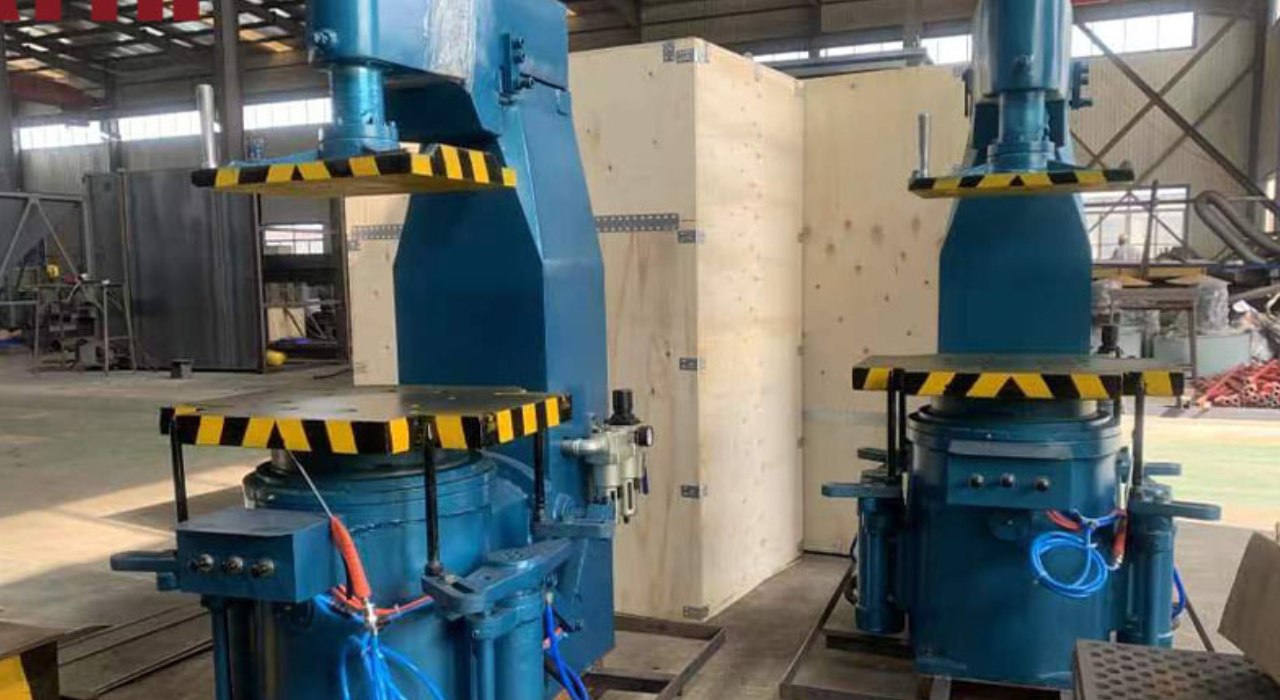Flaskless molding machines are prized for their sturdiness and versatility, making them integral in modern-day foundry operations. Constructed with strong substances like metal and solid iron, these machines resist the tough conditions of non-stop use in foundries. Their strong frames and components, inclusive of sample plates and compaction structures, are designed for long-term reliability, minimizing downtime and protection charges.
Versatility is another hallmark of flaskless molding machines. They accommodate diverse molding substances, inclusive of green sand, resin sand, and shell molds, making them adaptable to diverse casting requirements across industries. This adaptability allows foundries to supply a wide variety of components with regular quality and precision. Regular upkeep and renovation are critical for retaining the durability and versatility of flaskless molding machines.
Right Care extends its operational lifespan, ensuring continued reliability and overall performance excellence in meeting the evolving needs of modern manufacturing, and sustainable foundry practices. A flaskless molding machine is designed to provide durable performance, support sustainable manufacturing practices, and ensure dependable operation in the casting industry.
Contribution of Flaskless Molding to Sustainability
The flaskless molding era plays a large role in advancing sustainability within foundry operations by improving performance, lowering waste, and minimizing environmental effects. Here's a detailed exploration of how flaskless molding contributes to typical foundry sustainability goals:
Reduced Material Waste
Traditional molding methods regularly include the use of disposable flasks or mold packing containers made from substances like wood, metallic, or plastic. These flasks are assembled and disassembled for each mold, leading to fabric waste after every casting cycle. In contrast, flaskless molding machines dispose of the need for these disposable flasks. The molds are shaped inside a desk-bound shape or body, reducing the intake of mildew container materials and minimizing waste generation.
Optimized Sand Usage
Sand is a critical component in mold-making tactics, and its efficient use is critical for sustainability in foundries. Flaskless molding machines include automated sand transport and compaction structures that optimize sand utilization. By controlling parameters together with sand density and distribution, these machines ensure uniform mold packing while minimizing extra sand. Moreover, superior sand conditioning systems preserve the most fulfilling sand houses, extending their usability and lowering standard sand intake and waste.
Energy Efficiency
Flaskless molding machines are designed with energy-efficient functions that contribute to reduced operational power consumption. Modern machines make use of efficient vehicles, automatic systems that optimize cycle times, and advanced management technology that modifies strength use in the course of the molding process. Using minimizing strength expenditure consistent with the casting cycle, flaskless molding machines assist foundries in attaining decreasing operational costs and decreasing their carbon footprint.
Improved Process Efficiency
The automation and precision of flaskless molding technology enhance universal foundry performance. Those machines lessen exertions-extensive obligations related to mildew coping with, sand compaction, and sample control. Computerized structures for mold manipulation, sand conditioning, and pattern extraction streamline production workflows, permitting foundries to obtain better productivity with fewer sources. Superior method efficiency translates into decreased downtime, accelerated throughput, and advanced shipping times for clients, aligning with sustainable production practices.
Enhanced Mold Quality and Consistency
Flaskless molding machines contribute to sustainable practices by improving mold quality and consistency. Appropriate manipulation of sand compaction, pattern alignment, and mold formation ensures uniform casting dimensions and floor finishes. Exquisite molds produced in the flaskless era reduce the occurrence of defects and scrap parts, minimizing material waste and the need for rework. Steady mold also improves normal casting yield and operational efficiency, supporting sustainable manufacturing practices in foundries.
Reduction of Emissions and Environmental Impact
The flaskless molding technology helps mitigate environmental effects by reducing emissions and waste technology in foundry operations. The elimination of disposable flasks reduces waste substances coming into landfills or requiring recycling methods. Additionally, optimized sand usage and electricity-efficient operation make contributions to lower greenhouse gas emissions and environmental pollutants related to conventional foundry strategies. With the aid of flaskless molding technology, foundries can display dedication to environmental stewardship and regulatory compliance, contributing to sustainable development desires.
Adaptability and Versatility
Flaskless molding machines offer versatility in mold-making skills, accommodating numerous molding materials (which include green sand, resin sand, or shell molds) and supporting diverse casting applications throughout industries. Their adaptability lets foundries successfully respond to market demands and patron necessities without compromising sustainability targets. By enabling the production of complicated molds and high-precision castings, flaskless generation complements foundry competitiveness at the same time as selling sustainable manufacturing practices.
Workplace Safety and Employee Well-being
Making sure a secure and healthy working environment is necessary for sustainable foundry operations. Flaskless molding machines comprise superior safety capabilities, together with interlocks, emergency stops, and ergonomic designs that minimize risks related to mildew management and device operation. Through prioritizing workplace protection, those machines reduce the danger of accidents and injuries, fostering superb painting surroundings that support employee well-being and productivity.
Conclusion
The flaskless molding technology represents a transformative method for sustainable foundry practices, presenting efficiency gains, waste reduction, power savings, and advanced environmental performance. By integrating automatic tactics, optimizing aid utilization, and enhancing mold pleasantness, flaskless molding machines allow foundries to obtain operational excellence while minimizing their environmental footprint. As industries more and more prioritize sustainability and regulatory compliance, flaskless molding technology emerges as a pivotal answer for advancing sustainable production practices in worldwide foundry operations.


